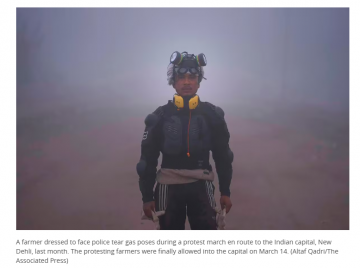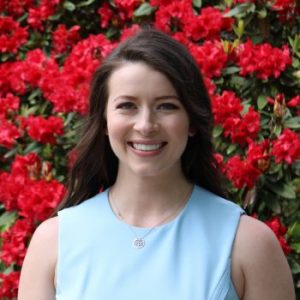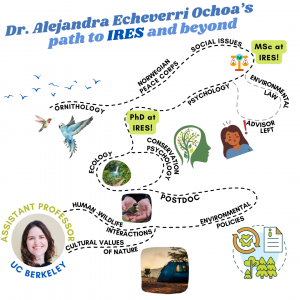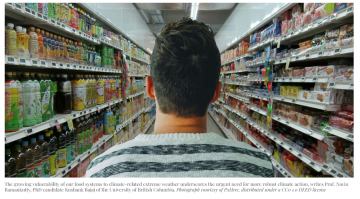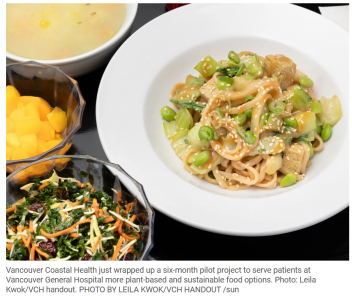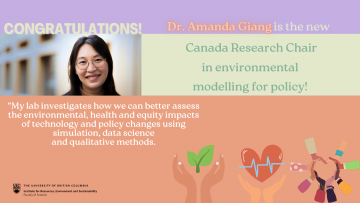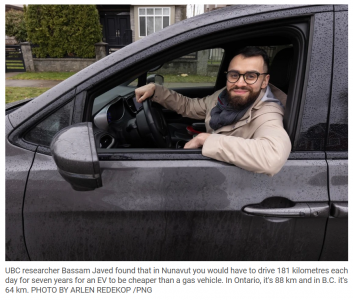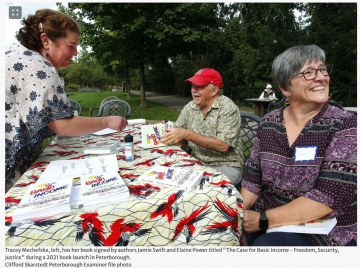What’s behind India’s farmer protests? For one thing, climate change
Dr. Balsher Singh Sidhu, adjunct professor in UBC’s Institute for Resources, Environment and Sustainability, said Indian farmers are facing difficulty growing rice and wheat because of more frequent heat waves and drought
Wanting to do actionable research brought alum Claire Ewing to IRES
Interview from 2024
At IRES, alum Alejandra Echeverri Ochoa combined social and ecological sciences
Interview from 2024
Climate change will affect your grocery prices
“The growing vulnerability of our food systems to climate-related extreme weather underscores the urgent need for more robust climate action” – Dr. Navin Ramankutty and PhD candidate Kushank Bajaj are featured in the Hill Times and argue that climate change and extreme weather events will affect the prices of fruits and vegetables in Canada.
This is why an electric vehicle will cost you more in Ontario than other provinces
A new study co-authored by PhD student Bassam Javed, Dr. Amanda Giang and Dr. Milind Kandlikar explored electric vehicle costs across different provinces and territories and is featured in CBC News, CTV News, and the Daily Hive
Vancouver General Hospital tests out plant-based food for patients
PhD student and surgical resident Dr. Annie Lalande co-led the Planetary Health Menu project which introduced plant-based and sustainable food choices to patients in hospital.
Can an EV save you money? It depends on where you live and how much you drive
UBC researchers explored electric vehicle costs across different provinces and territories. Stories quoted PhD student Bassam Javed, Dr. Amanda Giang and Dr. Milind Kandlikar.
Dr. Amanda Giang is the newly appointed CRC in environmental modelling for policy
March 13, 2024 | IRES’s Dr. Amanda Giang is one of five new Canada Research Chairs (CRC) joining UBC Science – we are honoured to work with Giang, and wish her a warm Congratulations.
Can you save money driving an electric vehicle? UBC researchers crunched the numbers
PhD student Bassam Javed and Dr. Amanda Giang found that in Nunavut you would have to drive 181 kilometres each day for seven years for an EV to be cheaper than a gas vehicle. In Ontario, it’s 88 km and in B.C. it’s 64 km. Their study has been featured in the Vancouver Sun, The Province, MSN; La Presse, Eurasia Review, CKNW Jill Bennett Show (aired live on Feb. 29), and the CJAD Elias Makos Show
Basic income could provide the breathing space so many need
Dr. Jiaying Zhao led a study which found that unhoused people are more likely to spend a lump sum of money on rent, food, housing, transit and clothes, despite public perception otherwise.
